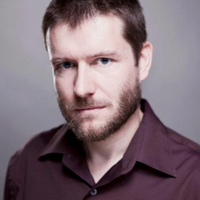Researcher Seeks to Understand Economics of Clusters
Kristian Behrens, Professor of Economics at Université du Québec à Montréal (UQAM) and holder of the tier-2 ‘Canada Research Chair in Regional Impacts of Globalization,’ serves as Leading Research Fellow at the HSE Centre for Market Studies and Spatial Economics (CMSSE) and Academic Supervisor at the Centre for Interdisciplinary Basic Research at HSE St. Petersburg. With a PhD in Regional and Urban Economics from the University of Burgundy, Professor Behrens focuses primarily on regional and urban economics, new economic geography, international and interregional trade, multiregional spatial and urban systems, and monopolistic competition. He recently spoke with the HSE New Service about the work currently being undertaken by CMSSE, his broader research interests, and his impressions of working in St. Petersburg.

Kristian Behrens
— Could you say a few words about CMSSE and some of the topics you focus on?
— The Centre for Market Studies and Spatial Economics is one of HSE’s international research centres. We work in particular on topics related to models of market structure and spatial economics. Currently, the centre is developing models that allow us to better understand how consumer demand influences entry into industries, price competition there, and the range of available goods and services.
At the same time, we also want to understand how economic activity organizes itself spatially. Where do firms locate? Why do they generally tend to cluster in a small number of places, despite the fact that this increases competition among them?
— How does your own research align with that of the Centre? What are you working on currently?
— I am currently working mostly on spatial economic topics and issues related to market structure. My current research projects try to understand the spatial organization of the economy. This can be how firms agglomerate across regions, the location of economic activity within cities, but also the spatial organization of residential location patters (e.g., segregation or the colocation of ethnic groups). Of special interest to me now is the economics of clusters. Where are they? How do they form? What is driving them? How can we assess their benefits to productivity and the resilience of firms in the global economy?
— How do you organize your work between Canada and Russia?
— I mostly work in Canada but come 2-3 times a year to Russia to work with my colleagues at the centre. I especially like coming for a month in June since there are both White Nights in St. Petersburg and the centre’s annual international conference, which is always a very good event.
— What are some of the things you like about Russia? Do you have any favourite places to visit while you’re here?
— I like coming to Russia. I know now fairly well the western part, but I have never travelled to the Far East. I like St. Petersburg in particular – it has a very ‘European feeling’ and a deep historical background. I also liked Novgorod very much; it’s like traveling back in time. Moscow is a nice city too, although it already feels much more like the ‘big restless city’ than St. Petersburg does.
Whenever I come to St. Petersburg, I take time to visit things that I haven’t seen yet, although this list gets shorter and shorter. I am especially fond of the Hermitage and the Mariinsky Theatre, which I try to visit on a regular basis. I also like to experiment with Russian cuisine, and there are great places to have dinner or lunch in St. Petersburg.
Anna Chernyakhovskaya, specially for HSE News Service
Kristian Behrens

